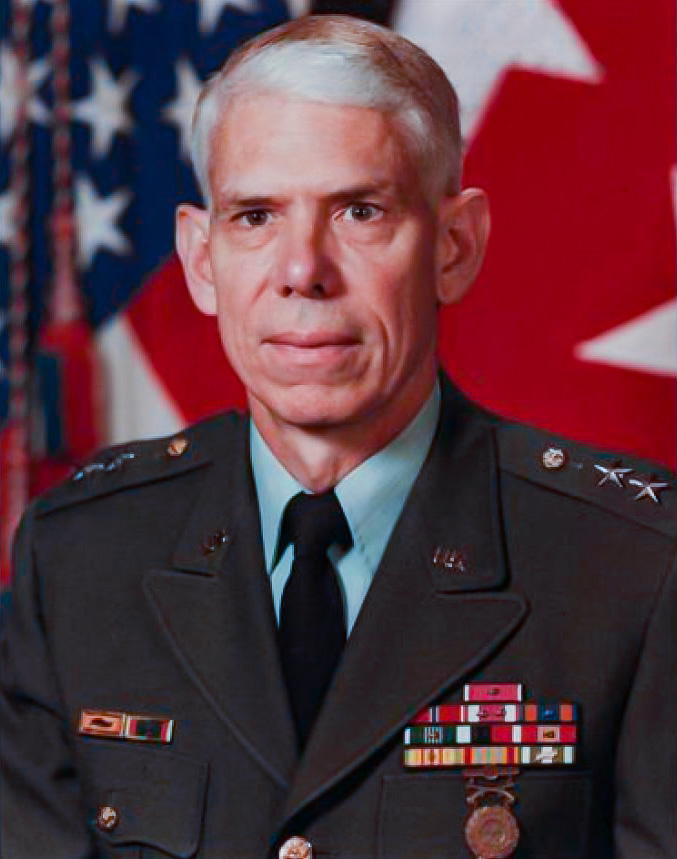Major General Albert N. Stubblebine III: A Complex Legacy
Major General Albert "Bert" N. Stubblebine III was a United States Army officer whose career spanned conventional military leadership and the more unconventional realm of psychic warfare. As a key figure in U.S. intelligence and mind-focused military projects, his life and work remain subjects of both intrigue and controversy.
Early Life and Military Career
Born on February 6, 1930, in the United States, Stubblebine graduated from the United States Military Academy at West Point in 1952. He quickly rose through the ranks, demonstrating an aptitude for intelligence and operational planning. Over his three-decade military career, he served in various command and staff positions, ultimately becoming a major general.
His most notable military role was as the Commanding General of the U.S. Army Intelligence and Security Command (INSCOM) from 1981 to 1984. In this capacity, he oversaw intelligence collection, counterintelligence, and electronic warfare operations. He was also known for his emphasis on modernizing Army intelligence operations, incorporating new technologies and methodologies to enhance national security.
Unconventional Interests: Psychic Warfare and the Human Mind
Stubblebine's tenure at INSCOM is best remembered for his strong belief in the potential of human consciousness as a tool of warfare. He became a key proponent of "psychic spying"—a concept that revolved around using extrasensory perception (ESP) and remote viewing to gather intelligence.
He was heavily involved in Project Stargate, a classified U.S. government program aimed at exploring whether psychic phenomena could be used for espionage. The project, which began in the 1970s and lasted into the 1990s, was conducted by the Defense Intelligence Agency (DIA) and the CIA, among others. Stubblebine was particularly interested in remote viewing, a practice where individuals attempted to "see" distant locations or events without physical presence.
Stubblebine believed so deeply in the human mind's untapped potential that he even experimented with "thought-based" physical feats, including attempting to walk through walls using mental power alone. He was convinced that with enough training, soldiers could unlock extraordinary abilities. His enthusiasm for these ideas, however, was met with skepticism within the military establishment.
Departure from the Military
In 1984, Stubblebine was forced into early retirement, reportedly due to his unconventional views on psychic warfare. His ideas, while fascinating, were not widely accepted by military leadership, and his push for greater research into paranormal abilities likely contributed to his dismissal.
After leaving the military, he continued advocating for the power of the human mind, emphasizing that traditional scientific paradigms were too limited in their understanding of human consciousness.
Later Life: Alternative Medicine and Conspiracy Theories
Following his military career, Stubblebine became involved in the alternative health and anti-establishment movement. He and his wife, Dr. Rima Laibow, a psychiatrist, co-founded the Natural Solutions Foundation, which promoted alternative medicine and opposed vaccines, genetically modified organisms (GMOs), and what they saw as government overreach in public health.
Stubblebine became a vocal critic of the official narrative of 9/11, claiming that the attack on the Pentagon could not have occurred as reported. He also engaged with various conspiracy theories regarding the New World Order, mind control, and covert government programs.
His shift from military intelligence to alternative health and conspiracy circles alienated him from many in the intelligence and defense communities. However, to his supporters, he was a whistleblower exposing hidden truths about government activities.
Legacy and Impact
Major General Albert Stubblebine III remains a controversial figure in both military and civilian circles. His contributions to intelligence modernization are undeniable, but his interest in psychic warfare and later involvement in conspiracy theories have led many to view him as a fringe figure.
Nevertheless, his role in Project Stargate and his advocacy for the untapped potential of the human mind ensure that his name remains part of discussions about the intersection of military intelligence, paranormal research, and government secrecy. Whether he was a visionary ahead of his time or simply a man captivated by unproven ideas, his life remains a fascinating chapter in the history of U.S. intelligence.

No comments:
Post a Comment